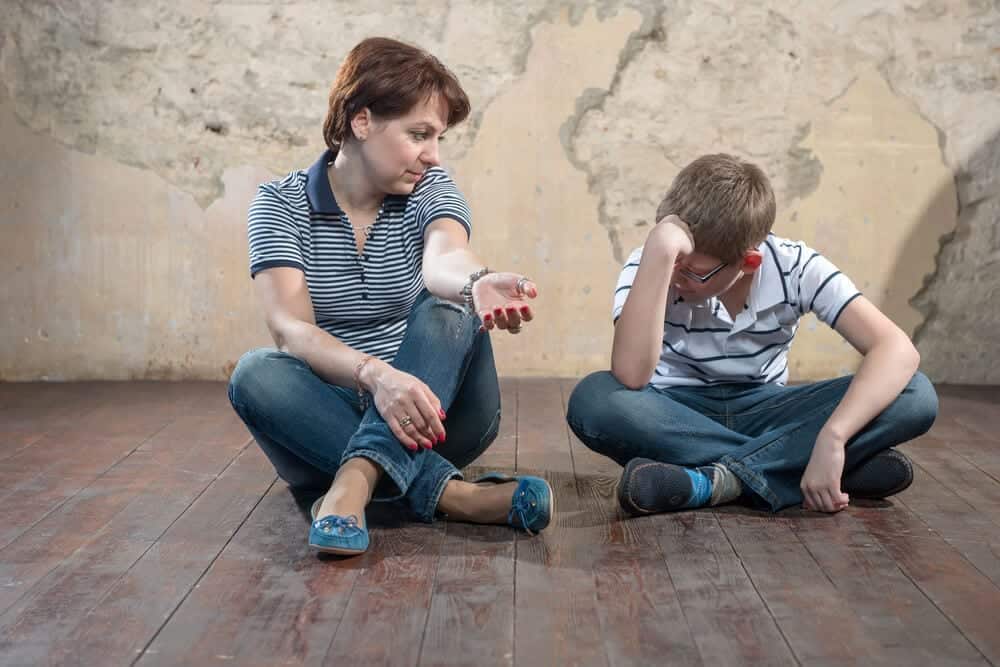Mental health issues do not discriminate. No matter their age, race, gender or even level of success, people around the world struggle with mental health issues. In recent years, we have read about and heard the unfortunate outcomes of the struggles faced by several celebrities such as Robin Williams and Kate Spade.
Admirers around the world were shocked to learn that these seemingly successful, well-off people had not only suffered from a mental disorder but that they chose to take their lives to escape the pain and suffering of their disorders.
Unfortunately, mental health is not a sign of social status, is not determined by how much money you have in the bank account or how many friends you have. It is a common misperception that just because a person has become successful in the public eye and is financially secure that they are happy and healthy. This lifestyle does not automatically protect people from troubles of any kind but most importantly from mental health issues. Teens in the spotlight, with their still-developing bodies and minds, are more susceptible to mental health issues than others.
While we all tend to idolize and admire the lifestyles of the rich and famous, what we don’t see is what happens behind closed doors. Teens, in particular, tend to look up to those in the media who have supposedly “made it” and aspire to be like them. They may visualize themselves in their shoes or reaching that same level of success someday. The reality is, teens should understand that not only does fame and fortunate bring glory and money but stress and loneliness. More importantly, it provides a platform for sufferers to share about their mental health issues, to reveal their struggles to their fans and to demonstrate their coping mechanisms.
The topic of teen mental health has become more prevalent in the media as superstars and celebrities begin to expose the truth behind the faces that we see in the media.
According to the National Institute of Mental Health, 1 in every 5 teens suffers from a mental health disorder.
Just because a teen has achieved a level of success or is seen as a celebrity, it does not mean that they are excluded from this category. Let’s take a look at some of these young people who have openly divulged their struggles with mental health and their approach to managing it.
Bella Hadid, a world re-known supermodel, shares how for 5 years, she has struggled with depression and anxiety. At the age of 18, Bella began modeling lingerie for some of the most well-known and powerful clothing lines in the world, putting her body on display.
Underneath the cloak of clothing (or lack of), she reveals the internal battles she experienced with not feeling good enough, body image and a tremendous sense of guilt for living the lifestyle that she has while experiencing depression.
In a recent post on social media, Bella expresses how she manages her mental health while being one of the highest-paid supermodels in the world. “Being kind and protective to yourself and your energy is something I’ve learned to be helpful.”
Bella Hadid shares her struggles publicly to help destigmatize the issues of teen mental health and to help others to know that they are not alone.
While the world saw and heard this up and coming singer and performer, Liam was struggling with his ascent into fame and with it, fortune. As he entertained his fans, he always felt that he was wearing a mask, hiding his true feelings of depression and at times, suicidal thoughts, behind a costume.
Having pushed beyond his teen mental health issues, Liam has become an advocate for others struggling as well. He wants teens to understand that there is no shame in admitting that you need help and in fact, asking for that help.
He believes that in seeking the help of trained professionals and through the proper treatment, all teens can move through their issues and learn to manage their thoughts to lead successful lives, however, success will be defined for them.
While Dove Cameron is known for her career as a singer and actress, she has recently shared that she is seeking treatment for her mental health issues. Having ascended quickly on the acting scene, Dove expresses how she does not expect the world or her fans to understand what she is experiencing. But she also asks for them to allow her the opportunity to be sad or to be wherever she may be.
When it comes to celebrities, the media and the world tend to speculate on what the cause of mental health issues or feelings may be.
They cannot surmise that a mental health issue may be at work in the midst of great fame or being in the spotlight. While we see the happy, smiling, resilient teen on the big screen or television, Dove shows us that things may be at work in the lives of celebrities that we may not know or have read about and that they too need time and space to heal.
Cara Delevingne, whose acting and modeling career sky-rocketed when she was just 15-years old, has managed to overcome depression, anxiety, and self-hatred. Some may wonder how the Model of the Year can experience mental health issues but again, fame and fortune do not guarantee happiness and health. Cara shares how she attempted to manage her thoughts by engaging in risky behaviors and taking drugs. Unfortunately, this only led her further into a deeper depression, causing her to consider suicide as her only avenue of escape. Through the proper treatment and therapy, Cara continues her career in film and print while putting her modeling career on hold.
Michael Phelps, the most decorated Olympian in history, shares his struggles with mental health as a teen. Battling anxiety and depression, Michael was subjected further to challenges when he was bullied for his over-sized ears and for having to take his medication for ADHD. He found solace in swimming because he could scream under the water, releasing his pent up anger and anxiety. After each Olympic achievement, the media and fans would swarm him with congratulations and praise yet it could not replace the emotions that were stirring inside him of a lack of self-worth. In all honesty, Michael could not like himself or the person he saw in the mirror. Trying to run from admitting his mental health issues, he attempted to self-medicate leading to unfortunate public notoriety because of his poor decisions.
After attending an intensive in-patient treatment program, Michael has found ways to manage his depression and has become an advocate for mental health treatment. He relies on those closest to him for support and constant encouragement. Although he may still have bad days, he shares that he has an “arsenal of tools and people to help him through”.
Demi Lovato, a famous singer and actress, began her career in the public eye at the young age of 10, starring in Barney and Friends.
Since then, Demi’s career has propelled her around the world, taking her mental health issues along with her on public display. She has shared her struggles with bipolar disorder and eating disorders and their connection with her subsequent addiction challenges. Like many sufferers, Demi resorted to drugs as a means to handle her illness and avoid the symptoms only to compound her issues.
Having sought treatment several times and experienced a drug overdose, Demi is now an advocate for teen mental health through the organization Be Vocal: Speak up for Mental Health. After struggling with mood swings, self-medication, thoughts of suicide and violent outbursts for years, she was finally diagnosed in 2010 with bipolar disorder. Her sense of relief in knowing that there were treatment options has led her to advocate and encourage more teens to seek help.
Unfortunately, only 4 out of 10 people seek assistance for their mental health issues and Demi does everything that she can to encourage those other 6 to seek treatment as well, using her celebrity status as a platform.
Justin Bieber, rising quickly in the music world from a very young age, has been transparent about his struggles with mental illness. He shares with NME how although he is in the spotlight, surrounded by millions of fans and listeners, he feels isolated and alone. He experiences depression and anxiety from the constant expectations to meet the demands of the industry.
Although he may be a pop-superstar and icon for aspiring performers, Justin explains that he regularly leaves meet and greet events feeling “drained and unhappy”. The world may see him as an inspiration, yet Justin questions the dark side of fame and its impact on teen mental health when achieved at an early age like his.
With the proper treatment, medication and support system, Justin has been able to recover from his struggles and looks forward to encouraging others to seek the same.
Emma Stone, a well-known actress starring in dozens of movies, tells Rolling Stone magazine what it was like growing up as a child with generalized anxiety disorder. Her anxiety was constant, relentless and life-altering.
Aside from therapy, Emma used acting as a means to help her manage her panic attacks and anxiety. While acting has helped her to cope with her mental health issues, she advises other sufferers to “find that thing within you that you are drawn to”.
Emma now advocates for the mental health of children through the Child Mind Institute, encouraging parents to seek treatment for their children through trained medical professionals.
From models to athletes, singers and actors, celebrities around the world are using their platform to draw attention to their very private, debilitating yet real mental health issues. While teens idolize and look up to these superstars, it is important that they understand that they too are human and are faced with struggles and challenges of mental health. Their advocacy reveals also another side of the fame and fortune that is presented in the media. While money and celebrity status may be appealing, they can also exacerbate or give life to teen mental health issues.

Each of the celebrities discussed above has become an advocate for the proper diagnosis and treatment of mental health issues across a wide array of disorders. While each may still struggle on a daily basis, their very public struggles should encourage others that there is no shame in the struggles or in seeking treatment from trained medical professionals like those at Beachside Teen Treatment Center.
With the treatment and the support of loved ones, teens can manage their diagnoses and go on to lead successful lives and even succeed to the celebrity level if this is the path that they choose. The testimonies of these brave celebrities display a sense of hope that help is available to all. If you suspect that your teen may be struggling with a mental health disorder, contact their pediatrician and possibly a referral for further assistance and support from a mental health professional like the ones that work here at Beachside.

